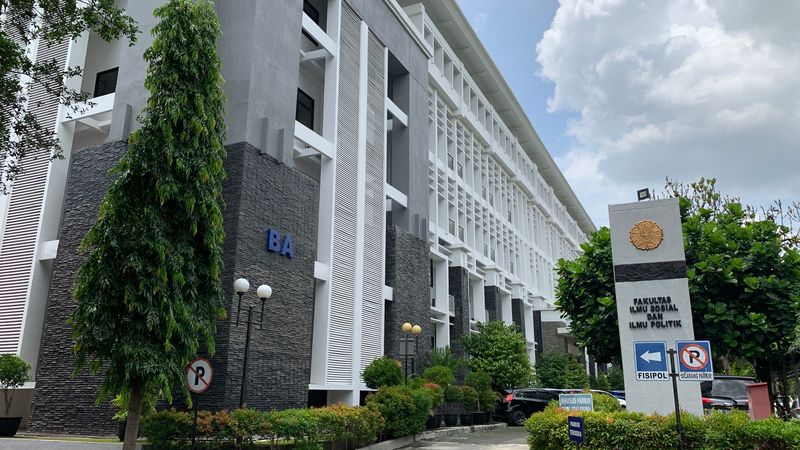
Yogyakarta, April 22nd 2024─Three study programs of the Faculty of Social and Political Sciences (FISIPOL) of Universitas Gadjah Mada are included in the QS World University Rankings (WUR) by subject 2024. The three study programs are Public Policy Management (MKP) or Social Policies and Administration at rank 108, International Relations or Politics and International Studies at rank 156, and rank 206 occupied by the Sociology study program.
Vice Dean for Academic and Student Affairs of Faculty of Social and Political Sciences UGM, Prof. Dr. Poppy Sulistyaning Winanti, S.IP., M.PP., said she was proud of the achievement, but it was still a reminder for the management of the Faculty to continue to make continuous improvements. This is because the recognition from this international ranking agency can be taken into consideration to choose which aspects need to be improved. “This achievement can be a proud aspect, but also a kind of self-reflection on how we in the Faculty need to improve our quality and reputation better,” Poppy said in her statement to journalists on Friday (18/4).
According to Poppy, Fisipol UGM has been implementing policies based on the Tri Dharma of Higher Education as the main focus. In the academic field, the Faculty has tried to build an international reputation by opening international standard programs, both at the undergraduate and postgraduate levels. “For undergraduate programs, Fisipol UGM opens International Undergraduate Programs (IUP), while for postgraduates there are double degree programs with various partners,” she explained.
As it is known, the size of the study field ranking assessment imposed by the QS WUR institution includes five assessment indicators, namely in terms of academics, education workforce, citations, H-Index, and international research networks. To encourage the publication of international research, Poppy said, the Faculty has routinely provided research grants for lecturers and researchers since ten years ago. “We continue to strive to boost our international reputation through research cooperation and publications with international partners. One of them is with research grants through partner cooperation schemes. We also encourage researchers and lecturers to bid for grants at the international level, which we continue to develop,” she explained.
Sustainability is one of the points added to the QS WUR assessment criteria this year. For this one issue, said Poppy, Fisipol UGM in carrying out its work program always encourages the improvement of sustainability aspects ranging from academic to social and environmental activity initiatives. Some of what has been done include the availability of disabled-friendly facilities and infrastructure, initiation of village development cooperation, grants for community skill development, and research publications on Sustainable Development Goals (SDGs) indicators.
The issues of Green Society, digital transformation, and social inclusion are the three main pillars that continue to be encouraged by the Faculty and realized in various programs. “In the last two years, we have had a flagship that we call Green Society. Not only do we try to prioritize green (environmental) issues in academic, research, and service programs, but also introduce various programs related to these issues,” she explained.
Poppy emphasized that the internationalization of programs at the Faculty of Social and Political Sciences UGM will continue to be encouraged. Apart from increasing international academic standards, strengthening cooperation and accepting the number of foreign students at the Faculty are also important aspects. “We from the faculty will also be very supportive of programs or policies to encourage international students to study at UGM, and with that we hope that the Faculty of Social and Political Sciences UGM can get better international publications and attention,” she concluded.
